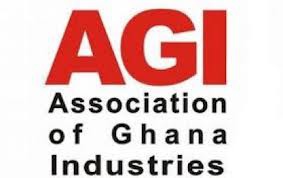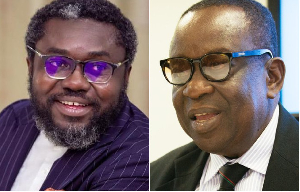Some industrialists, particularly those badly hit by Nigeria’s trade restrictions, seem to think so; they think that since diplomacy has failed, Ghana must come up with its own ‘prohibition list’ and refuse certain goods entry -- giving the excuse that it targets no country in particular.
That way, they argue, the ECOWAS Trade Liberalisation Scheme (ETLS), which is the main ECOWAS operational tool for promoting the West Africa region as a free trade area, might gain some leverage.
“If we also make it difficult for them to export, then we would have to find common ground,” Kate Quartey-Papafio, CEO of Reroy Cables, told the B&FT in an interview.
“Even for those who are able to export to Nigeria, you have to get different certificates for different customers and it takes a whole lot of time to get it. It makes the whole thing so cumbersome. You are exporting the same thing but you have to go and get certificates for each of the customers,” she said.
“There should be a clear letter written to the Nigerians complaining about this, and then also try and use some diplomatic means to quickly resolve it,” Seth Twum Akwaboah, CEO of the Association of Ghana Industries, told the B&FT.
“If it doesn’t work then we must also look at countervailing measures…it could be product targetting,” he said.
Nigeria has used an “Import Prohibition List” to refuse certain goods entry into that country, including a host of pharmaceutical products.
Richard Okrah, Managing Director of Intravenous Infusions Limited -- a pharmaceutical company that produces intravenous infusion fluids, told the B&FT that his company could have generated an additional 25% of export turnover from the Nigerian market.
The company faces no such restrictions from Burkina Faso, Cote D’Ivoire and other countries where it exports to.
Last week, when the Trade and Industry Minister Mr. Ekwow Spio-Garbrah visited the factory at Koforidua, Richard Okrah asked him to intervene and help his product gain entry into the Nigerian market.
“We have been making efforts through our agent in Nigeria to get us off this list. But it is becoming a very difficult job for us,” Richard Okrah told the B&FT by phone.
The company, he said, currently produces close to 6million IV fluids of various sizes per year, and that: “We have the capacity to step this up to 15 million because we are installing a new semi-automated plan that should be up and running by the middle of April this year”.
Mutual lack of trust among member-states has, for decades, held back efforts at trade liberalisation in the ECOWAS sub-region.
In October 2014 when First Bank of Nigeria, having acquired Ghana’s International Commercial Bank (ICB), was commencing operations, President Mahama made a public appeal by saying: “Nigeria has nothing to fear from Ghana, you are the largest economy in Africa. You must learn to compete with Ghana”.
The president went on to say that: “Competition is good for both countries. Let us export the textiles into your country; let us export the processed goods into your country and you export yours into ours. I think that it’ll make our two countries stronger”.
The CEO of Tropical Cables and former CEO of the AGI however believe that Ghana’s Trade and Industry Ministry needs to do a lot more work on trade relations between the two countries.
“This should be one of the major concerns of our trade and industry ministry, because in West Africa Nigeria remains the biggest market…the ministry should take up the matter and make sure that the ECOWAS protocols are not limited to the free movement of persons, as they are doing now: even more important for us is the goods and services.”
Currently, Ghana and Nigeria are said to account for some 68 percent of the ECOWAS region’s Gross Domestic Product.
Nigeria accounts for almost 10 percent of Ghana’s foreign trade volume, whereas Ghana is listed as the 9th largest trade partner for Nigeria.
In spite of the difficulties, Ghana remains Nigeria’s largest trade partner and favourite investment hub in the West Africa sub-region, as Ghana imports the largest share of all Nigerian oil exports in the West African sub-region.
In the financial sector there are a number of Nigerian banks now trading in Ghana.
While ‘bagged cement’ is on Nigeria’s prohibition list, Dangote Cement brings in and bags some 750,000 tonnes of cement a year for the Ghanaian market, and is expected to increase this to 1.5 million tonnes by end of this quarter.
Business News of Wednesday, 17 February 2016
Source: B&FT Online
Should Ghana close-up to make Nigeria open-up?
 File photo
File photo












